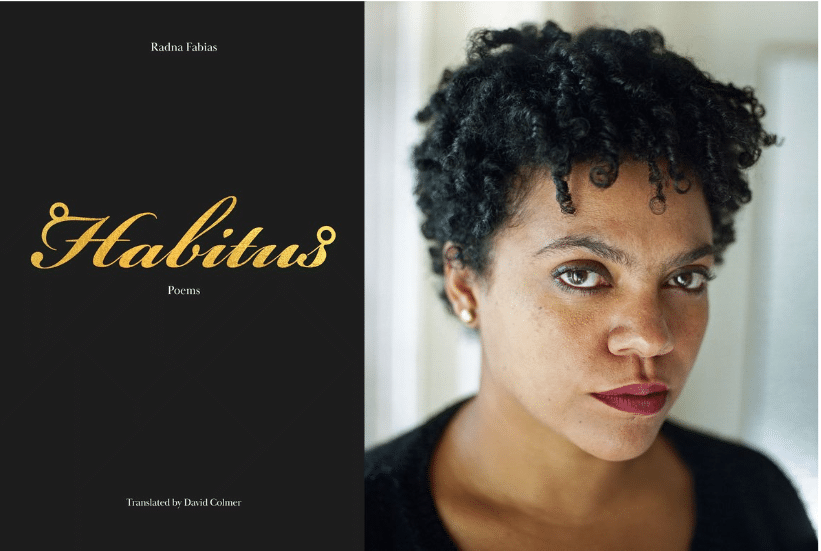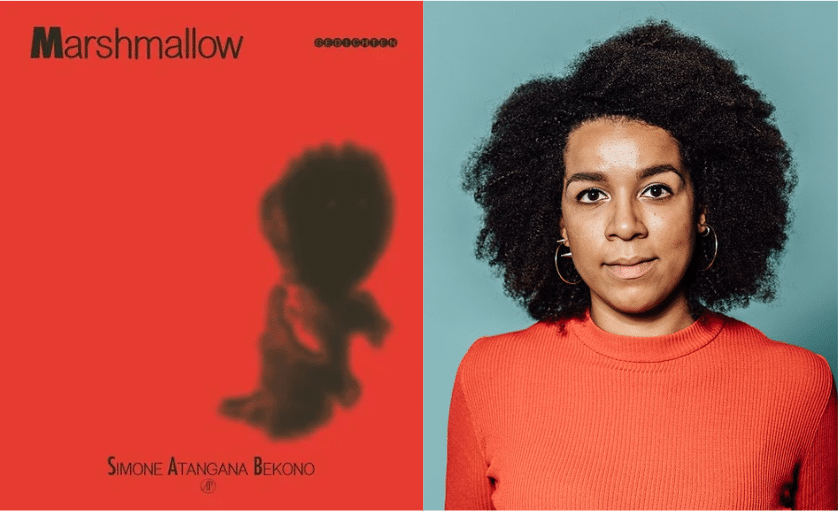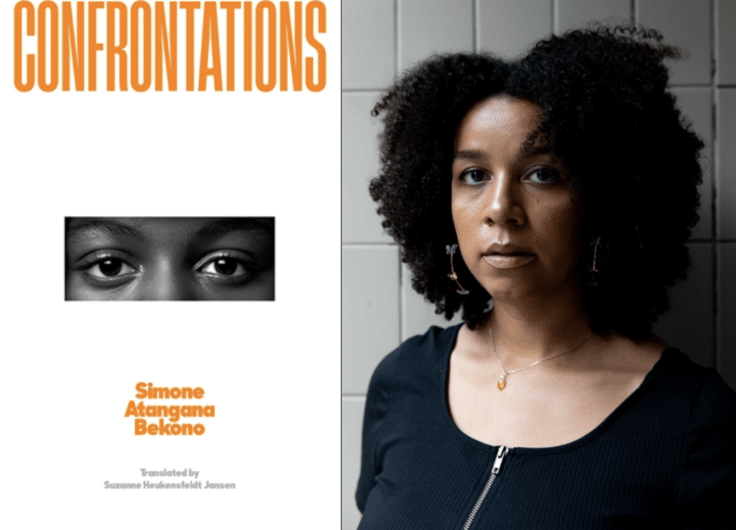Every month, a translator of Dutch into English gives literary tips by answering two questions: which translated book by a Flemish or Dutch author should everyone read? And, which book deserves an English translation? To get publishers excited, an excerpt has already been translated. American-born queer poet and translator Egan Garr stirs up enthusiasm for two poets who showed an original voice in Dutch literature in recent years.
Must-read: ‘Habitus’ by Radna Fabias
 Radna Fabias
Radna FabiasIt might be mistaken for informality, stream-of-consciousness, or a derivative of e. e. cummings, but the minimal use of punctuation in a good deal of contemporary Dutch poetry is actually one of its most interesting tricks.
I first recognized how this device works on an operative level in Radna Fabias’ brilliant Habitus (De Arbeiderspers, 2018 and Deep Vellum, 2021). I’ve since come to call it anti-enjambment (though it might also be understood as anti-caesura), where on a single poetic line a lack of punctuation between potentially distinct clauses initially seems to offer a certain intention or momentarily confuse the reader, and the line break that follows—usually itself a traditional enjambment—then obfuscates or clarifies the syntax. Here each line gains multiple meanings, and there are multiple meanings between them. The line break’s function as a caesura, too, is thrown wide, deflected, or in some way problematized.
If it can be said that a reader is implicated by a poem’s devices, then anti-enjambment makes a reader’s footing unsure, forcing us to come closer. In other words, it says, wake up.
Fabias’ Habitus, translated by David Colmer and published by Deep Vellum (US) in 2021, is full of these poetic caveats. Take the opening stanza of “is, is like”:
the returned migrant is like
the returned migrant is is
the hot air the succumbing to the heat
is the succumbing
There are lots of reasons to read this collection. The Dutch publication won all the awards, and Colmer’s translation does it justice. But Habitus
is also a technical study of syntax and line breaks that refute the traditional Dutch register in both content and form. These poems are soft and razor-sharp; as a reader, you are not let off the hook.
Radna Fabias, Habitus, translated by David Colmer, Deep Vellum, 2021, 130 pages
Read our review of Habitus HERE.
To be translated: ‘Marshmallow’ by Simone Atangana Bekono
 Simone Atangana Bekono
Simone Atangana BekonoThe astonishing Marshmallow by Simone Atangana Bekono also does not spare the reader safe distance in neatly organized syntax, instead yielding the e/affective pivot of anti-enjambment, among its mastery of other devices, to implicate us in romance’s carnal and spiritual aftermath. These poems are wry, sad, often nightmarish, as they navigate the undoing we experience in intimacy.
The collection opens with “uhh,,,i am sorry i know nothing of form!!”, then breaks into four sections: “terra”, “kamer”, “zonder kamer”, and “marshmallow”. These titles already cue an unreliable terrain for the reader—a chimerical structure we are meant to navigate, alert. Indeed, just looking at the collection from the lens of its imagery: the persistent appearances of dogs, horses on city streets, a headless woman (also at the end, heads), the rooms that come in and out of focus. As if we are reading a story (a dream?) as it dissolves. So too the techniques of these poems, where the poet, like a trickster, does not flinch in shaking the ground we think we are on.
Marshmallow is excellent. Atangana Bekono’s rapidly growing oeuvre, both in poetry and prose, proves her a force in today’s literature, and not just in the Low Countries.
Simone Atangana Bekono, Marshmallow, De Arbeiderspers, 2024, 80 pages
Read our review of Confrontations, the debut novel of Simone Atangana Bekono HERE.
Read an excerpt of Zo hoog de zon stond by Simone Atangana Bekono HERE.
Excerpt from Marshmallow, translated by Egan Garr
sexting,
“I thought now they’re going to sing holy songs to me
they’ll all fall to their knees
but no one moved!
when I came to I was lying in my baby’s arms
boundaries severely crossed”
*
“[fatally] hit with
devotion like very old camels
defeated headed towards
a calm colt all alone
I was so greedy—
you know me, right?
always busy with something distasteful
ravenous pretty little things
hoisted like a forklift”
*
“to drink I have to
lie on my back so I lie on my back
in cradam on my back and
on the floor of the queer bar the bartenders
have to pour wine in my mouth
with drooping wrist it’s pretty awkward”
*
“to eat on my knees at the table
shoveling everything towards my stomach
cup-a-soup: tricky, lentil soup oatmeal: nuh-uh
bread cheese cubes long beans
fine
call me kitty”
*
“I scrub the floor smack myself on the nose
when I wipe my mop around and around
the nosebleed just gushes in my underwear
call me
tiny kittenkitty
while I decay”
*
“catcalling kitty
twice hazed
tipping: I stick $50 bills
in pant pockets with my eyes
on the chest when he thumbs
thank-yous over my eyebrows (just
below my collarbone)
I purr can’t contain myself”
“I’m gropey-arms he giggles
why am I suddenly so horny again
and he smells more like fish than I remember?”
*
“now I look so sick so plump
glimmend and streaked look so sick
almost white and wish
these snakes that I
see with dry eyes were
my arms but they’re just snakes
knotted up—but now
in the gash from before I was this
monster is
strange it feels like
I’m only now really myself
on my knees
that gash was always there
but covered up on my
knees
like a pre-“
“monster and a pre-monster
a dipshit and a pre-dipshit
pre-feathers mounted
animal an omen
a reptilian wheel”
*
slide to the middle and everything
is covered in red-orange
my cheeks, I was flushed
subdark and miss
a kind of skin
they say walk with your chest out
chin up but I’ve got no chin
I’ve got no head he drips out of me
and I want to scream?
the scream ends up a ball
when he’s inside me
he covers my mouth
with his solar plexus
ball
gag / in his bellybutton







